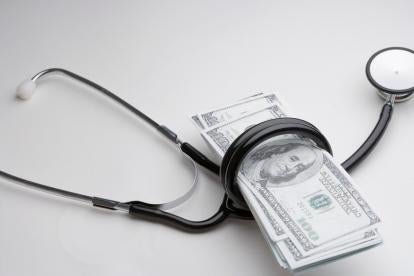Like many automobile no-fault systems, New York’s no-fault law provides that in an auto accident, each injured person or their medical provider is entitled to direct reimbursement for medical expenses regardless of fault from each person’s own automobile no-fault insurer. So what happens if the medical providers bill the injured person’s health insurer instead of the no-fault insurer and the health insurer pays the bills? The New York Court of Appeals just answered that question.
The facts of the case are straightforward. Aetna Health Plans v. Hanover Ins. Co., No. 97, 2016 N.Y. LEXIS 1689 (Jun. 14, 2016). A person injured in a car accident sought medical treatment for her injuries. Instead of billing her no-fault carrier, her medical providers billed her health insurer. The health insurer paid some of the bills (and then paid more bills). Eventually, the health insurer asked the no-fault insurer for reimbursement of the bills that the health insurer paid. The no-fault insurer did not respond and the health insurer filed a lien for reimbursement should the claimant recover against the alleged tortfeasor in a personal injury action. The claimant also sent copies of the medical bills to the no-fault carrier and demanded payment. The no-fault carrier did not respond and the claimant demanded arbitration for no-fault benefits because of the health insurer’s lien. The claimant lost the arbitration because the arbitrator found that the documents submitted were not bills and, even if they were, the claimant lacked standing to make the claim because the health insurer had paid the bills.
As a result, the claimant assigned her rights to the health insurer and the health insurer sued the no-fault carrier on the claimant’s behalf. The motion court granted the no-fault carrier’s motion to dismiss and the appellate division affirmed.
In affirming as well, the New York Court of Appeals focused on the no-fault statute and operative regulations that limit no-fault benefit payments to applicants or, upon assignment, to the applicant’s medical providers. The health insurer argued that because it was assigned the claimant’s rights it had standing on her behalf to seek reimbursement. The court rejected this argument because the assignment of the claimant’s rights was already made to her medical providers when they billed and were paid by the health insurer. Thus, said the court, there was nothing to assign. Second, the court held that because an assignment of no-fault rights can only be made to a medical provider and the health insure admittedly was not a medical provider, the claimant could not assign her rights to the health insurer.
The dissent argued in favor of equitable subrogation, but the majority rejected this theory of recovery. A concurring opinion suggested that the health insurer may try to seek recovery directly from the medical providers as those providers were the ones that billed the wrong insurance company. Thereafter, the providers could bill the no-fault carrier (and likely face late notice arguments).
Healthcare reimbursement, whether it be no-fault or not, is very confusing and often difficult to navigate. Providers sending bills to the wrong insurance company only makes things more difficult. This happens with frequency. Health insurers in New York now know that if they pay medical bills arising from car accidents, recovering reimbursements directly from a no-fault carrier is not going to happen.




 i
i


